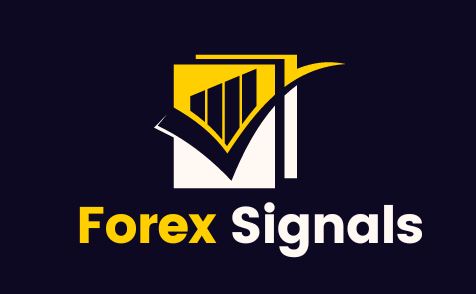
Forex Signals
Trading simplied
Proprietary Trading Firms
Everything you need to know before you start trading with a prop trading firm
-
#1 forex Channel
290k Subscriber
"Without Forex Signals I would not have passed the FTMO challenge - thank you!" Edouard, Paris
Proprietary Trading Firms
We've compared the following prop firms highlighting the pros and cons of each.

- Sign up fee: $410 - $684
- Drawdown: 4%
- Account size: $5,000 - $10,000.000
- Profit Share: 65%
- Sign up fee: $182 - $1,268
- Drawdown: 5%
- Account size: $10,000 - $200,000
- Profit Share: 70%

- Sign up fee: $275 - $875
- Drawdown: N/A
- Account size: $24,000 -$80,000
- Profit Share: 50%

- Sign up fee: $109 - $649
- Drawdown: 5%
- Account size: $10,000 - $70,000
- Profit Share: up to 100%

- Sign up fee: $125 - $275
- Drawdown: if the balance falls below the minimum account balance you will be pulled from your trades right away
- Account size: $200,000 - $500,000
- Profit Share: 80%
These are proprietary trading firms that our members have previously joined and highlighted to us as being reputable. However, please ensure that you do your own due diligence on your chosen proprietary firm. We do have an affiliate partnership with the above proprietary trading firms.
What is prop trading?
A proprietary trading firm or 'prop firm' refers to an organisation that hires traders (like you) and investors to trade capital on their behalf. It's a great way for retail traders to access larger sums of capital to trade with, without essentially risking their own money.
There has been a boom in prop trading in the last 2 years as more and more people learn how to trade and seek a full time trading career.
The job of a prop trader is simple - to make profitable returns for the organisation when trading with their funded trading account. In return, traders receive compensation through a split of the profits they generate, typically 50/50.
Generally, to become a prop trader, you must complete an evaluation process (often referred to as a 'challenge') to prove their trading skills and experience to the prop firm. After that, it's quids in!
How much money can retail prop traders make?
It's no secret that proprietary trading offers high earning potential.
But what does this mean money-wise? The earnings of a prop firm trader can be extremely volatile and are highly dependent on many factors such as, market environment, experience level, performance, and so on.
However, if we're speaking numbers, considering you're working with a legitimate prop trading organisation, you can receive up to 90% of your profits. 90%!
And the best part? There is no limit to the amount of money a prop trader can make. Your pay-check is entirely determined by your ability to make trading profits. Are you keen to learn how to trade with a prop firm? Let us help you.
How to trade with a prop firm?
How does it typically work
1.
PASS VERIFICATION
You sign up with a prop firm and pass their verification. Typically 30 days.
2.
MEET A PROP FIRM CRITERIA
You sit the challenges. Most, but not all, have challenges that you need to pass, before you will get the funds. Typically 30-90 days.
3.
ACCESS TO THE FUNDS
Upon passing the prop firm challenge, you will get access to the funds and profits
How can
Forex Signals
help you get
started with a prop firm?
Here at Forex Signals, we provide world-class resources to get you in
the best possible position to pass Prop Trading challenges and trade
with one of the top Prop Firms. Here's how:
PROP FIRM EDUCATION
We've developed specific courses to help you master the prop trading challenges and what to look for when picking a prop firm to trade with.
HELP WHEN YOU NEED IT
Have a question about how prop firm challenges work? Just ask our experienced mentors.
COMMUNITY
...we've even got a community chat dedicated just to prop trading.
Prop firm course
Learn with Max Norbury and find out everything you need to know about prop trading. Here's what you're going to learn:
- Introduction to Prop trading
- What is Prop trading?
- Trading with a prop account
- Pros and cons of Prop trading

Have a question?
Send us a message on the Contact Us page or just speak to us on the 24/7 chat below.
FAQ's
Yes. Anyone with the right experience and knowledge of the market can get involved in proprietary trading.
Yes, but not all prop firms are. In recent years, proprietary trading has faced increasing regulatory scrutiny and is now subject to a highly complex set of rules. For more information about prop regulations, please click here. https://www.bovill.com/sector/uk-europe/capital-markets/proprietary-traders/
Proprietary trading institutions provide the firm’s capital to traders in order to carry out trading activities in a number of different financial instruments. Subsequently, any profit gained by the trader is then taken wholly or partially by the firm as per the profit-sharing agreement.
You can start with as little as $0. However, in such cases, the institution will keep all the profit you make. In return, you will receive a fixed salary as compensation. Normally, when joining a prop firm, you will pay a one-off sign up fee and this ranges from a few hundred dollars, to thousands of dollars.
Proprietary traders are significantly different from retail traders. In fact, most prop traders make money by taking a share of the profit they make by making trades. With that being said, performance is a critical factor in a prop trader’s income.
Proprietary traders may execute various different strategies that include index arbitrage, statistical arbitrage, merger arbitrage, fundamental analysis, volatility arbitrage, technical analysis or global macro trading.